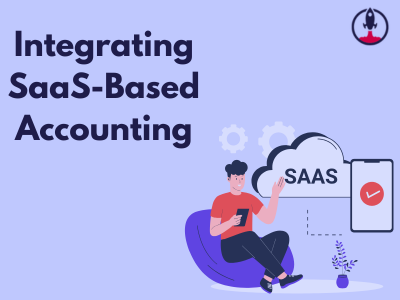As remote work becomes increasingly prevalent, businesses must prioritize secure communication channels to protect sensitive information. SaaS email solutions offer robust security features that are essential for safeguarding corporate data in a remote work environment.
Remote work has introduced new challenges for businesses, particularly in maintaining secure communication. With employees accessing corporate networks from various locations, the risk of data breaches has increased. SaaS email solutions provide a comprehensive approach to security, offering features such as encryption, secure collaboration tools and AI-driven threat detection. These solutions are crucial for protecting sensitive information and ensuring seamless communication among remote teams.

Integration of SaaS is Crucial
The integration of SaaS email solutions has become particularly crucial as organizations navigate the complexities of hybrid work environments. These solutions provide centralized management capabilities that enable IT teams to maintain consistent security protocols across diverse work locations. By implementing standardized security measures through SaaS platforms, organizations can ensure that employees receive the same level of protection whether they’re working from home, in the office or on the go.
Addressing Security Challenges in Remote Work
The shift to remote work has exposed several security vulnerabilities. Employees working from home often use personal devices and unsecured networks, increasing the risk of cyberattacks. Email, as a primary communication tool, is particularly vulnerable to threats like phishing and malware. To mitigate these risks, businesses must implement advanced email security measures. SaaS email solutions offer encryption and real-time monitoring, providing an additional layer of protection against unauthorized access and data breaches.
Moreover, the evolving nature of cyber threats requires businesses to stay vigilant and proactive. Cybercriminals continuously develop new tactics to exploit vulnerabilities, making it essential for organizations to adopt robust security strategies. By understanding these challenges, companies can better prepare and protect their remote workforces from potential breaches.
Regular security assessments and penetration testing have become essential components of a comprehensive remote work security strategy. These evaluations help identify potential weaknesses in email systems and communication protocols before they can be exploited by malicious actors. Organizations should conduct these assessments quarterly, focusing on emerging threats and adapting their security measures accordingly. This proactive approach enables businesses to stay ahead of potential security breaches and maintain robust protection for their remote workforce.
The implementation of zero-trust security frameworks has emerged as a critical component in addressing remote work security challenges. This approach assumes no user or device is inherently trustworthy, requiring continuous verification at every access point. By adopting zero-trust principles in email security, organizations can better protect against sophisticated attacks that exploit traditional perimeter-based security measures, ensuring that only authenticated and authorized users can access sensitive information.
The Benefits of SaaS Email Solutions

SaaS email solutions play a vital role in enhancing security for remote work environments. These platforms offer encryption services that protect data during transmission, ensuring that sensitive information remains confidential. Additionally, they provide secure collaboration tools that facilitate safe communication between team members without compromising data integrity. By utilizing these solutions, businesses can maintain a high level of protection against cyber threats.
For example, a company specializing in IT services Houston adopted SaaS email solutions and reported a significant reduction in phishing incidents due to the platform’s advanced threat detection capabilities. Moreover, the integration of real-time monitoring and automatic alerts helped the organization respond swiftly to potential threats, thereby minimizing damage and maintaining business continuity. Exploring the best saas email security options can be a game-changer in maintaining data integrity.
Cost-effectiveness is another significant advantage of implementing SaaS email security solutions. Traditional on-premise security systems often require substantial initial investments and ongoing maintenance costs. In contrast, SaaS solutions operate on a subscription-based model, allowing businesses to scale their security measures according to their needs while maintaining predictable expenses. This flexibility enables organizations of all sizes to access enterprise-level security features without overwhelming their IT budgets. Implementing a subscription tracker can further enhance cost control by providing real-time visibility into active subscriptions, aiding in the identification of unused services, and preventing unnecessary expenditures.
Advanced analytics capabilities represent another significant advantage of SaaS email security solutions. These platforms provide detailed insights into email traffic patterns, threat landscapes and user behavior, enabling organizations to make data-driven decisions about their security policies. The ability to track and analyze security metrics in real-time helps businesses identify potential vulnerabilities and optimize their defense strategies, ultimately leading to more robust protection against evolving cyber threats.
Implementing Effective Security Strategies
To effectively secure email communications in remote work environments, businesses must adopt practical strategies tailored to their unique needs. One such method is implementing multi-factor authentication (MFA) for accessing corporate emails. MFA adds an extra layer of security by requiring users to verify their identities through multiple credentials before gaining access. This approach significantly reduces the risk of unauthorized access and data breaches.
Another critical strategy involves educating employees about best practices in email security. Regular training sessions on recognizing phishing attempts and handling suspicious emails can empower staff to act as the first line of defense against cyberattacks. Encouraging a culture of vigilance can significantly reduce the likelihood of successful breaches. Proactive measures like regular audits and updates to security protocols also play a crucial role in safeguarding corporate data.
Data classification and retention policies form another crucial component of email security strategy. Organizations should implement clear guidelines for categorizing sensitive information and establish appropriate retention periods for different types of data. This systematic approach helps ensure that confidential information is handled appropriately throughout its lifecycle, reducing the risk of unauthorized access or accidental exposure. Additionally, automated data classification tools can help streamline this process, making it easier for employees to comply with security protocols.
Regular security audits and compliance assessments have become indispensable components of effective email security strategies. Organizations must conduct thorough evaluations of their email security measures to ensure alignment with industry standards and regulatory requirements.
Leveraging AI for Enhanced Security
The incorporation of AI technologies into SaaS email platforms has revolutionized how businesses approach cybersecurity. AI-driven threat detection systems analyze vast amounts of data in real-time, identifying patterns indicative of malicious activities. This allows organizations to detect and respond to threats faster than ever before, enhancing their overall security posture.
AI tools also provide predictive analytics that forecast potential vulnerabilities based on historical data trends. By anticipating future risks, companies can take preemptive actions to mitigate them effectively. This proactive approach not only strengthens defenses but also instills confidence among users regarding their safety online. The integration of AI into SaaS email solutions represents a significant advancement in cybersecurity efforts across industries.
Machine learning algorithms within SaaS email security solutions continuously evolve to address zero-day threats and previously unknown attack vectors. These systems can analyze user behavior patterns to establish baseline activities and flag anomalous actions that might indicate a security breach. For instance, if an employee suddenly starts downloading unusually large amounts of data or accessing emails at irregular hours, the AI system can automatically trigger alerts and implement preventive measures. This dynamic adaptation capability ensures that security measures remain effective against emerging threats.
Natural Language Processing (NLP) capabilities within AI-powered email security systems have revolutionized the detection of sophisticated phishing attempts and social engineering attacks. These advanced systems can analyze the context and content of emails, identifying subtle anomalies in communication patterns that might indicate fraudulent activity. By understanding the nuances of human communication, NLP-enhanced security tools can better distinguish between legitimate business communications and potentially harmful messages, significantly reducing the risk of successful social engineering attacks.
There You Have It
In conclusion, SaaS email solutions are essential for securing communication in remote and hybrid work environments. By offering robust features such as encryption, AI-driven threat detection and centralized management, these platforms help organizations protect sensitive information from evolving cyber threats. The integration of zero-trust frameworks, regular security assessments, and employee training further enhances the effectiveness of these solutions.
Additionally, the cost-efficiency and scalability of SaaS models make advanced security accessible to businesses of all sizes. With the added power of AI and machine learning, SaaS email solutions not only defend against current threats but also anticipate and adapt to future challenges. As remote work continues to shape the modern workplace, investing in comprehensive SaaS email security is both a strategic and necessary step.
- Top 5 Best AI Presentation Makers in 2026 - December 24, 2025
- Best AI Text Generator Plugin for Woocommerce: WriteText.ai - December 23, 2025
- The 5 Best AI Tools for PowerPoint Presentations in 2025 - December 22, 2025


